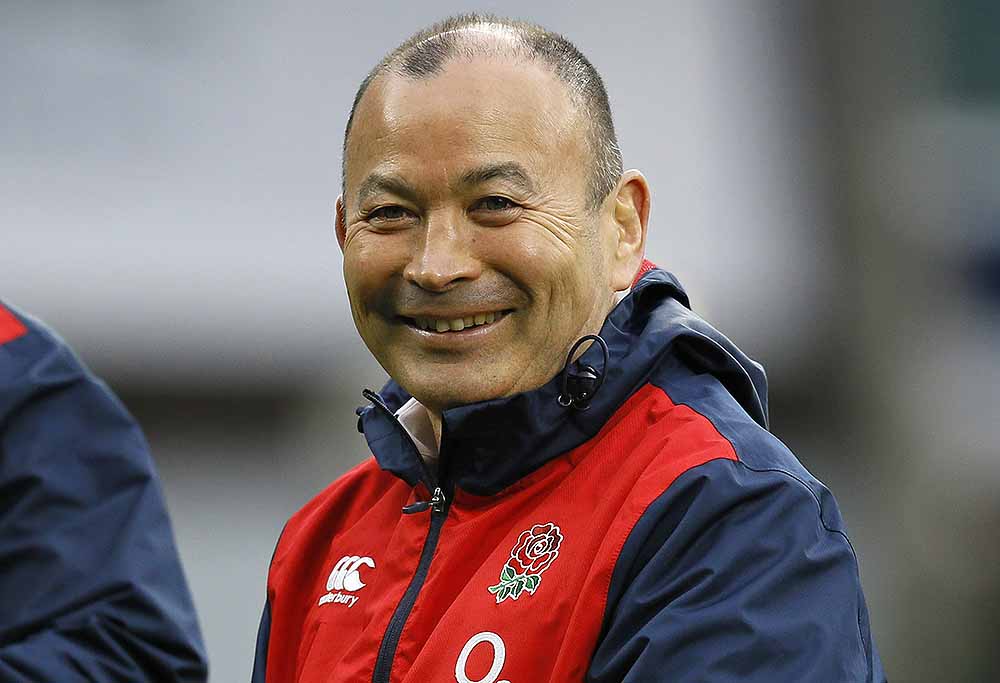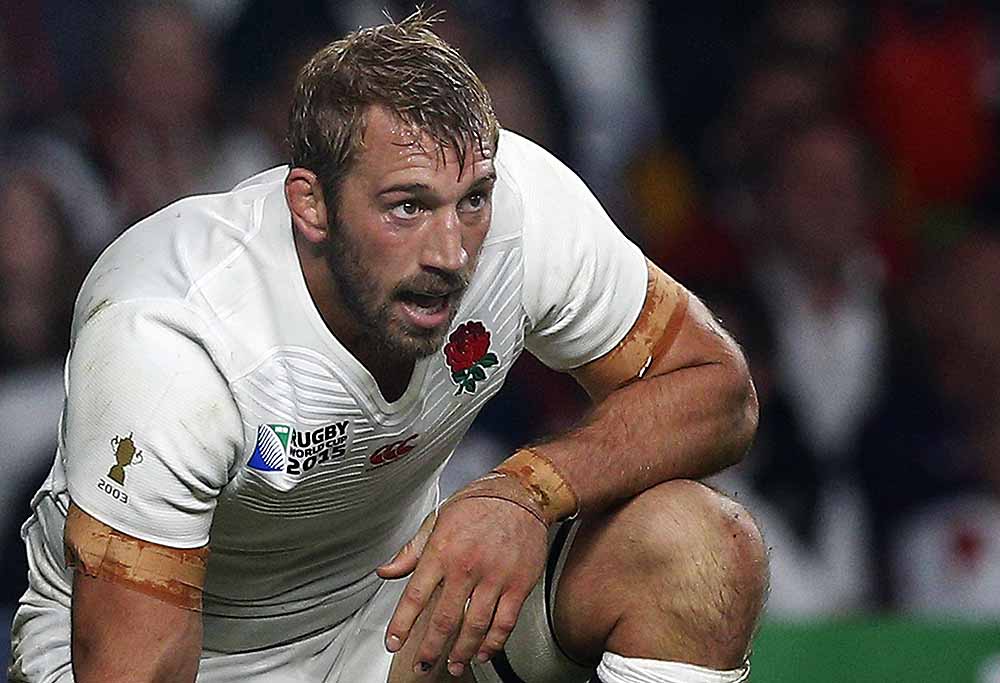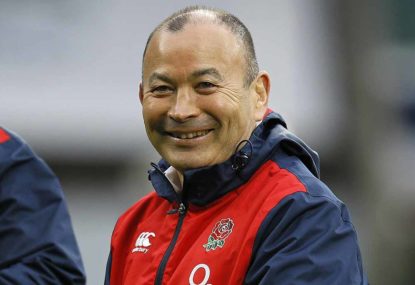Portents were good on arrival at Heathrow when the world’s most friendly immigration agent – a profession where cracking a smile is not part of the job description – discovered I was visiting the UK on rugby business.
Chest puffed, he proceeded to tell me all about his two sons, one of whom has just been awarded an academy place at a professional club – seemingly oblivious to the impatient queue of travellers building behind me.
The cab driver from Paddington station was another rugby nut; half way through Brian Moore’s latest book which, for the record, he rated as an average read only, but which didn’t diminish Moore in his eyes, because of his history of getting under the skins of Aussies and Kiwis over the years.
At my hotel, he signed off with “great banter guv’nor!” Indeed.
Sacrificing part of a Melbourne summer is a small price to pay, slipping straight back into an intense rugby environment. A bruised Eddie Jones is all over the media, promising that his side will play in a daring manner; imploring them to deliver a totally convincing performance during this Six Nations.
It’s a two-pronged strategy; a way to keep raising the bar for his men, and a method to maintain a psychological space between his side and the rest, implying that they are on another level.
True or not, it is interpreted both as classic Eddie, and typical English arrogance.

A 16-page Six Nations spread in The Daily Telegraph serves to remind how poorly rugby fans are served by the print media in Australia. It is far more interesting than the front pages, which tell of a severe shortage of lettuce in the supermarkets. One wonders if, in the land of breakfast fry-ups, British shoppers even notice? Just like say, if there was a shortage of soap.
The selection of Joe Marler, he of the crooked push, is the other big news story, having made a remarkable recovery from a leg fracture sustained on January first. Unlike Waisake Naholo, his miracle is not due to wrapping his leg in kawakawarau leaves, but drinking litres of full fat milk. Each to their own.
The last time I visited Twickenham, Stephen Larkham speared a drop-kick directly towards my seat behind the goalposts to ensure a semi-final win against South Africa ahead of World Cup triumph in Cardiff a week later. His kick so unexpected I was sure at the time, and still swear today, that it was a punt, not a dropkick, although history records otherwise.
The day before I was, (and I use this word carefully), privileged to witness France’s greatest moment in rugby, a second half from the heavens to stun the All Blacks 43-31. Twickenham indeed is a special place where special things happen.
Unfortunately for France, today is not another of those special days.
Guy Noves’ side showed promise in the autumn, troubling both Australia and New Zealand, while hinting at a more expressive style than shown in recent years. Indeed, from their first attack Noa Nakataici finds space and England’s Mike Brown is lucky to be ruled not to be taking the Fijian flyer out illegally.
It takes only 12 minutes for Jonny May to earn the ire of officials, sin binned for a clumsy rather than malicious tip tackle. It proves to be a telling period in the match, France unable to secure enough possession in the next ten minutes to work the ball into the vacant space.
The game opens up right on halftime, before French centre Remi Lamerat bombs a clear try-scoring opportunity by not passing infield to an open man with the line begging.

9-9 at halftime is a fair account, France look more dangerous with ball in hand – Scott Spedding in particular running strongly from broken play. But England appeal as more disciplined and better drilled, doing enough to stay in contact; helped as always by the unerring boot of Owen Farrell, with Eliot Daly chipping in as well from long range.
Inspirational No.8 Louis Picamoles, in the hands of the trainer for much of the first half, starts the second half strongly but halfback Baptiste Serin, for the second time, overplays his hand at the advantage line and the opportunity is lost. Serin has a beautiful pass off both hands and, like the absolute elite in any sport, plays as if he has an inordinate amount of time.
But his lesson today – keeping in mind he is 22, with only five Test caps – is that, at this level, he can’t do it all himself.
At 45m England’s Jonathan Joseph chips and chases, leaving two men outside him high and dry. Moments later winger Elliot Daly thinks he has the score in the left corner but video shows his foot grazing the touchline.
What followed was telling, the French scrum destroying England on their feed, courtesy of a fresh set of props. Strangely, it seems to spur England into action, the lacklustre, tentative play of the first half replaced by running and interplay with far more pace and purpose.
The game’s opening try, when it comes in the 59th minute, is a cracker. Under penalty advantage, two superb offloads, by Sebastien Vaahamahina then Kevin Gourdon, open up a seam for prop Rabah Slimani to cross untouched.
England’s response comes late, in the 71st minute, replacement Ben Te’o crossing after a series of sustained, battering attacks on the French line. Farrell’s conversion makes it 19-16 to England and from there they switch to a driving maul game, and professionally close out the contest.
Afterwards, coach Eddie is all smiles. He is happy to take blame for a stuttering start, knowing he has dodged a bullet in a game they could easily have lost. Also, he remains adamant that his side has its best performances in front of it; why wouldn’t he be happy?
Certainly his side doesn’t deliver on his promise of more dash and daring but, particularly with the arrival of Jamie George and James Haskell in the second half, they are persistently effective.
France contribute greatly. Their abrasiveness in defence and willingness to take the game on bode well, but as a group, they are not yet ready to win this type of tight, tough match against top class opposition – particularly when conceding 15 penalties to eight.
That winning day however, even if it is not a reprise of 1999, feels like it may not be far away.
In the early game from Murrayfield, Scotland exploited Ireland’s narrow defence for two tries to the fleet-footed Stuart Hogg. They also sprang a surprise at lineout, Alex Dunbar scoring a most un-centre like try, standing at three in the lineout and plucking a clean throw to dive and score.
Ireland controlled most of the second half but the match finished at the wrong end for them, Greig Laidlaw with the final flourish to a surprising but worthy 27-22 win.
It’s a significant step backwards for Ireland after their heroics in Chicago, but nothing that Vern Cotter and his improving Scotland team don’t deserve.
What was evident in both games is that there were numerous instances of defenders taking hunched or low ball-runners over the shoulder and/or around the neck. According to the letter of the new tackle law, these should be automatically penalisable, but referees Romain Poite and Angus Gardner seemed to apply an interpretation that if the ball runner had lowered his body, and the tackle was relatively passive, then it was play on.
Gardner, (who for Australian interests had a thoroughly competent match), did penalise a couple of genuinely high tackles, but both officials were in no hurry to reach for cards, one of the concerns for doom merchants when the law changes were announced.
This seems to me to be an eminently sensible interpretation, and if the high tackle continues to be refereed in this way, perhaps the angst over the new law will have been for nothing.































































































